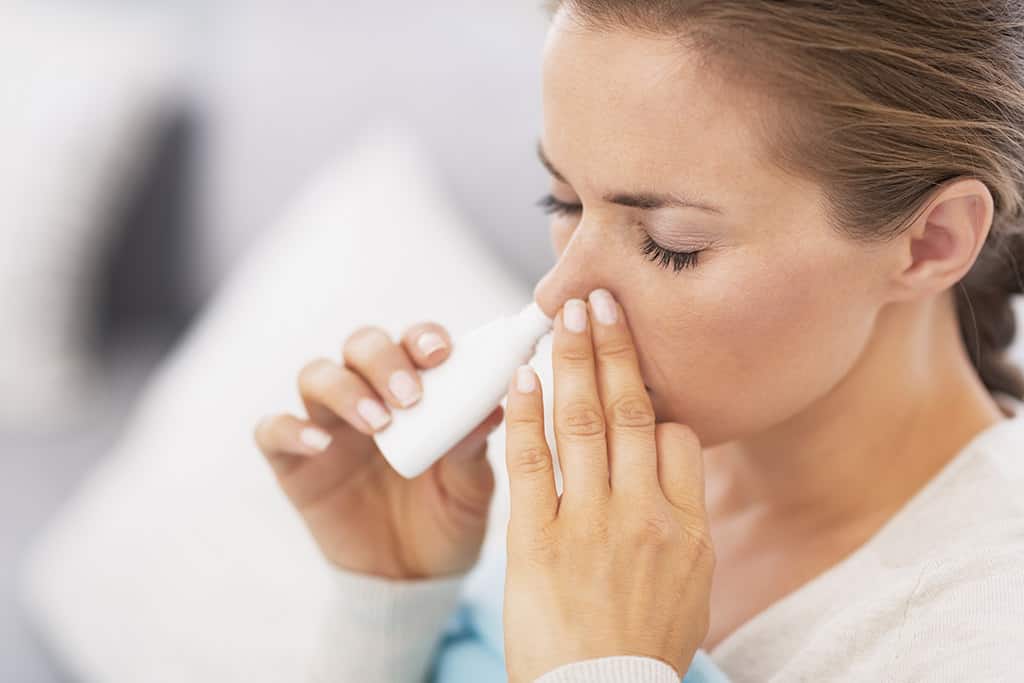Mouth Sores
Two of the most common mouth sores are fever blisters, also known as cold sores, and canker sores, also known as aphthous ulcers. Although they are very similar, these two conditions have distinct differences.
Fever Blisters (Herpes Simplex Virus Type 1)
These fluid-filled blisters usually appear on the lips but can occur on the gums and roof of the mouth, especially in the initial infection. When multiple blisters are seen in and around the mouth, typically that is indicative of a primary herpes simplex virus infection. These outbreaks can be severe in some cases until the body builds up antibodies against the virus. Isolated fever blisters are caused when the herpes simplex virus in a previously infected patient is activated by stress, fever, trauma, hormonal changes, or sunlight. These sores represent “secondary infections” and are usually painful even before they are visible. The blisters rupture within hours of appearing, crust over, and last seven to 10 days. Fever blisters tend to reappear in the same location.
Fever blisters are contagious from the time the blister ruptures until the sore is completely healed. The virus can spread to the person’s eyes and genitalia, as well as to other people. Therefore, it is important for people with a fever blister to avoid touching the blister and to wash their hands thoroughly before touching their eyes, genital area, or another person. Note: Despite all precautions, it is possible to transmit the herpes virus even when no blisters are present.
There is no cure for fever blisters, nor is there a reliable way to ensure that they will not recur. Typical treatment consists of coating the sores with a protective barrier ointment until they heal, and/or use of an oral or topical antiviral medication as soon as the symptoms of a fever blister are detected.
Canker Sores
Eighty percent of the U.S. population between the ages of 10 to 20 experience canker sores at some point in their lives. Women are more likely to get this condition. Canker sores also called aphthous ulcers, or aphthous stomatitis, are small, red, or white ulcers that can appear on the tongue or inside the lips and cheeks. Canker sores can be very painful, and usually, last five to 10 days if they are of normal size.
Unlike fever blisters, canker sores are not known or suspected to be caused by a virus or bacteria. Instead, they are thought to be a local breakdown of the oral mucosa for local or systemic reasons. They are linked to stress, trauma, irritation, and acidic foods such as tomatoes, citrus fruits, and some nuts. This means canker sores are not contagious.
Treatment usually involves relieving discomfort and guarding against infection by using a topical corticosteroid and protective watertight barrier.
When To See A Doctor
If a mouth sore has not healed within two weeks, you should see a physician to rule out infection or other more serious conditions. It is important to remember that the first sign of oral cancer is a mouth sore that does not heal. However, it should be noted that there is a subclass of patients who develop severe and relapsing aphthous stomatitis. Sometimes those ulcers can grow to several centimeters and be destructive, leaving soft tissue defects and scarring in some cases. In such situations, the ulcer can take three months or longer to heal, and there can be multiple ulcers at one time. This is a truly terrible condition to endure, and ENT evaluation to rule out cancer and treat symptomatically is typically sought.
Other Types Of Mouth Sores That May Cause Concern
Leukoplakia – This thick, whitish-color patch on the inside of the cheeks, gums, or tongue is common among tobacco users and can progress to cancer.
Candidiasis – This fungal infection (also called moniliasis or oral thrush) is common among denture wearers, the very young, the elderly, and those who have a problem with their immune system or have recently been on antibiotics.
Oral and Pharyngeal Cancer – These sores may appear as a white or red patch in the mouth, or a small ulcer that looks like a canker sore, initially. Oral cancer is most common on the lips, tongue, and the floor of the mouth (under the tongue). However, especially in those who drink or drank a lot of alcohol, the tonsil area, tongue, palate, lower throat (hypopharynx), and esophagus areas are also often involved. Accompanying symptoms can include a lump inside the mouth or neck; pain or difficulty in swallowing, speaking, or chewing; any wart-like mass visible in the mouth or throat; weight loss; or hoarseness that lasts for more than four weeks. Pain radiating up to the ear on the same side as the sore throat is also a sign of possible invasive cancer, though infection and ulcers can cause the same symptom of referred pain. It should be noted that smokers who never drank a lot of alcohol are more likely to have cancer develop in the area of the voice box (larynx). Oropharyngeal and laryngeal cancers are also often associated with the human papillomavirus (HPV), and those cancers consistently have a much better prognosis when properly treated.



